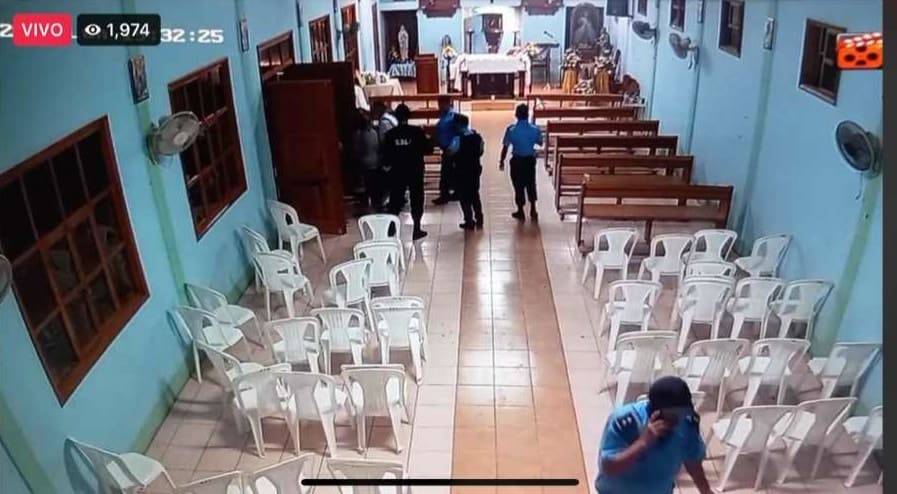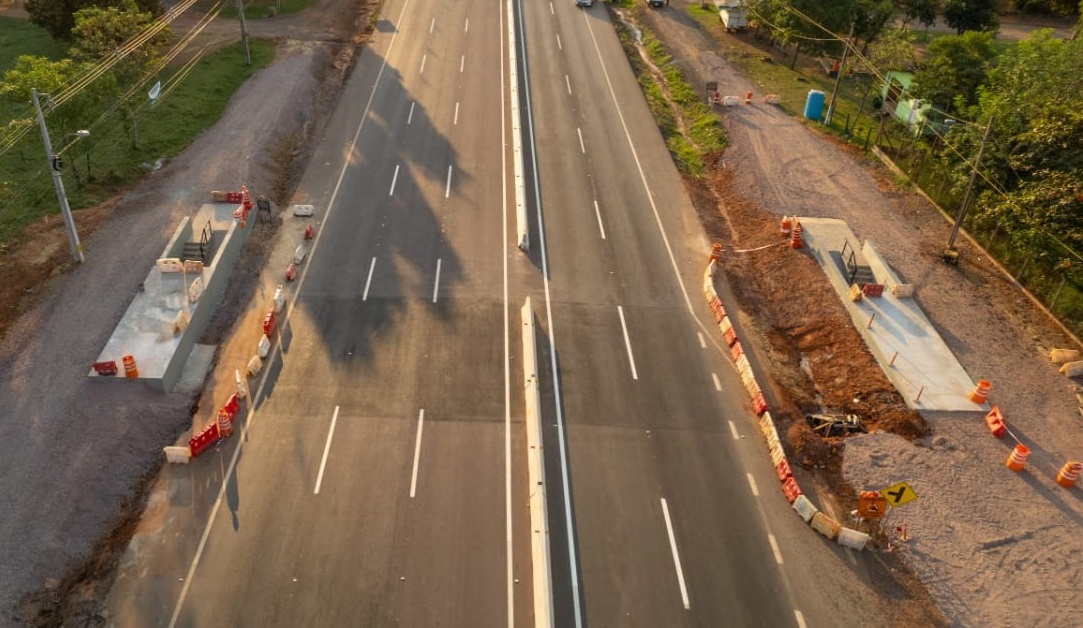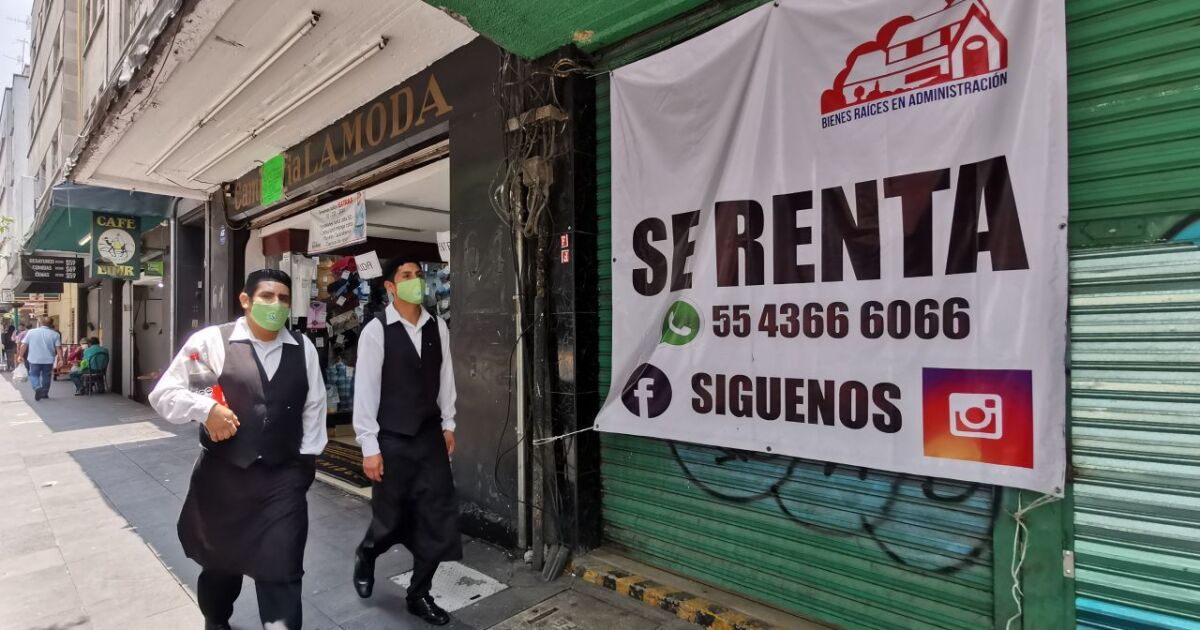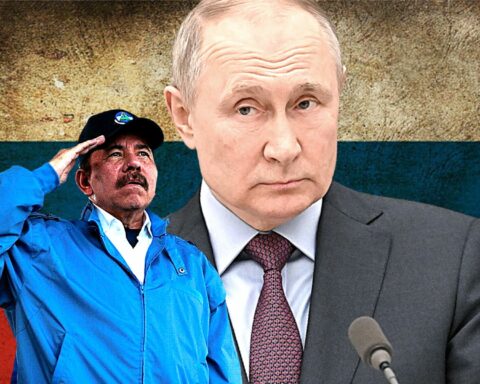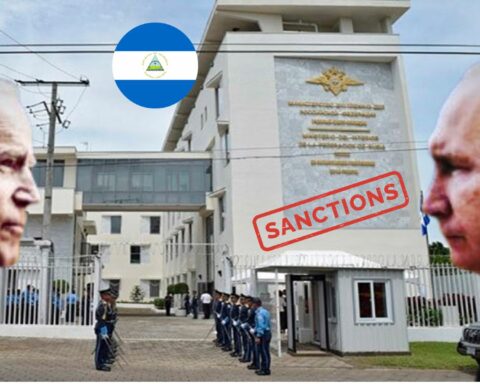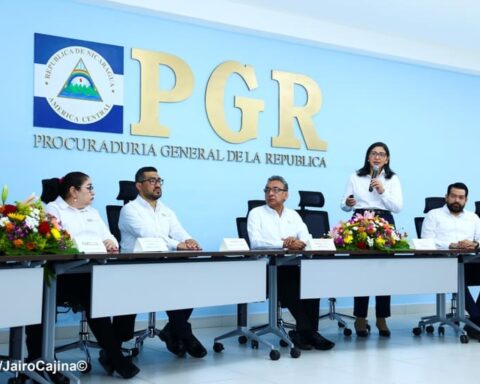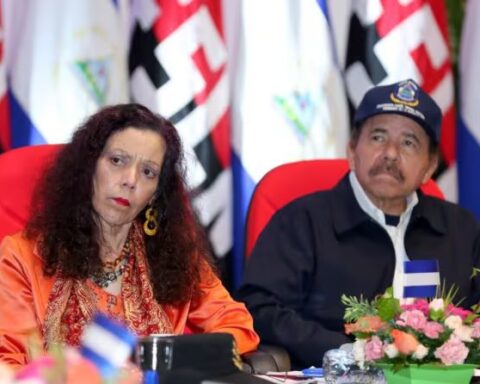Public sector employees in Nicaragua live with indignation, stupor, uncertainty, but also with great fear, the police siege against the priest Uriel Vallejos and six parishioners who have taken refuge since Monday, August 1, in the parish house of Jesús de Divina Misericordia de Sébaco in Matagalpa, in the north of the country.
“Juan” has been working as an official in the economics area for eight years. He is aware of the live broadcasts from the parish networks, and believes that it is an act of brutality, which aims to instill fear among citizens and uncertainty, because “if they are capable of doing that to the Catholic Church, what will they not do with us?”
In the last four months, the Ortega-Murillo regime has increased the persecution against the Church, whom it accuses of participating in an alleged coup in 2018. In May, the siege of the Bishop of Matagalpa and administrator of the Diocese of Estelí was registered, Roland Alvarez, they did the same with him father Harvesting Padilla in Masayaand in June they imprisoned the priest Manuel Garcia and in July to monsignor Jose Leonardo Urbina Rodriguez using processes lacking due process, according to lawyers consulted.
This state worker added that he witnessed—following social networks—when violently the special operations forces of the Police entered the parish of Sébaco, trying to appropriate the equipment of the Catholic Radio, one of the seven stations of the Diocese of Matagalpa illegalized by the Nicaraguan Institute of Telecommunications (TELCOR).
Although they failed in their attempt to take the devices, because the parishioners had taken them before, according to information from the parish, the Police took control of the chapel, the sacristy, the kitchen and the San Luis school by force. and kept the priest besieged.
“Juan” added that the most unfortunate thing is that “it is not known how far the Dictatorship Police authorities will go,” nor the leaders of the ruling party. In addition to the aforementioned attacks, the National Assembly also canceled the legal status of the Missionaries of Charity of the Order of Mother Teresa of Calcutta, who were expelled from Nicaragua last July 6 in another “inexplicable attack.”
anger, sadness and pain
“Carmen” works for the Nicaraguan Social Security Institute (INSS). She identifies as Catholic and says that she received these attacks with “pain”, “anger” and “sadness”. For her, it is a failed attempt to silence the Catholic Church, which has supported the population demanding respect for human rights.
The situation in Nicaragua is one of the most serious in terms of respect for civil rights for four years. In April 2018, in the face of massive protests demanding the resignation of Daniel Ortega, the Sandinista dictator accepted a national dialogue to buy time and meanwhile crushed the protests.
Initially, paramilitaries and police attacked unarmed civilians. The number of victims, in the context of those demonstrations, was 355, according to the Inter-American Commission on Human Rights (IACHR). But, in addition, the judiciary under the control of the Executive maintains 190 political prisoners in jail, based on processes described as anomalous by independent experts.
“It is already too much so much oppression. Closing newspapers, persecuting journalists is not enough for them, and now they are doing it with the Church. They declared war on him. They are treating them as if they were criminals”, condemned “Carmen”.
“Alberto”, a worker in the administrative area of the State, considered that what was executed by the Ortega Murillo Administration was wrong and obeyed the unreason of demonstrating that they “can do more, because they are in power.” “Although I work in the government, we are not going to fool ourselves and say that they have not done bad things. If no one says anything, it’s out of fear,” he confessed.
Two clerks from the Judiciary, also consulted on condition of anonymity for this note, were brief, but agreed in their answers separately. “Here nobody speaks out of fear, nor is anything mentioned about what is happening,” they agreed. One of them said that they are praying for things to change, but he no longer wanted to continue the conversation.
“Javier”, between indifferent and critical of religious
“Javier”, another government official, promised to be “neutral” with his position. He initially commented that he has not followed up on what is happening with the Catholic Church and stated that he is more aware of what is happening with China, Russia and Afghanistan.
However, regarding the harassment of religious, “Javier” said that he does not share that the Church has “political leanings.” For him, this brings disastrous consequences for the population and affirmed that the religious institution must be neutral and follow its own Christian precepts.
“When the Church attacks a government – whatever it may be, it acts recognizing it as an enemy – they are attacked. In history this has already happened in other countries too, finding the Churches involved in anti-government activist organizations”, she justified.
The Ortega-Murillo regime is questioned internationally, not only for violating the freedoms of citizens in Nicaragua to stay in power, but also for the specific disrespect for religious freedom, expressed through persecution, dirty campaigns and threats. to priests.
In 2019, Pope Francis recommended the exile of the Auxiliary Bishop of Managua, Silvio José Báez, who was the target of attacks by Sandinista fanatics. A study of the lawyer Martha Patricia Molinapublished last June, revealed that 190 attacks against the Catholic Church were recorded in the last four years.
In reality, the Ortega dictatorship, based on the thesis of the supposed “coup” of the State, imposed a system in which civil liberties have been restricted; Since then, it has prevented opposition marches since September 2018, and has fostered despair in the youngest and in society in general. More of 100,000 Nicaraguans migrated between 2020 and so far in 2022 to protect their security, or seeking an economic improvement.

